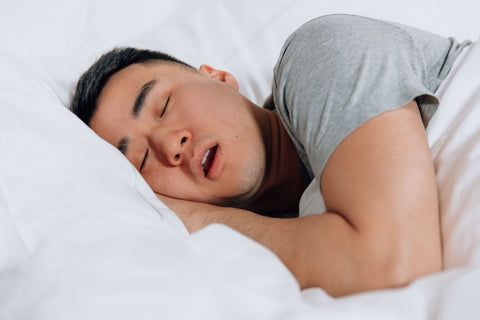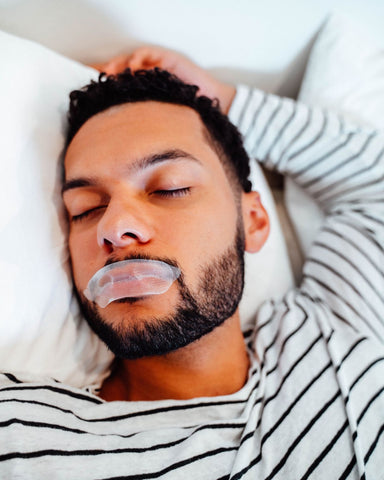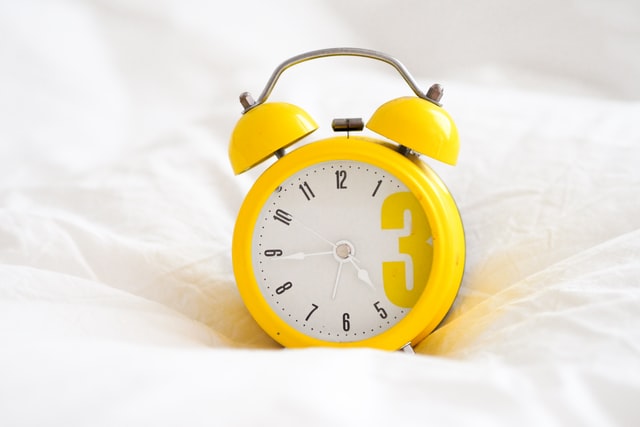Our bodies require different amounts of sleep at different points throughout our lives. By the time we reach adulthood, most of us need between seven and nine hours each night.
That said, many people fall short of meeting these requirements. As a result, sleep deprivation and sleep deficiencies are on the rise faster than ever before.
In fact, 32 percent of working adults say they get just six hours of sleep each night or less, up from 28 percent in 2008.
Sleep deprivation leads to slower reaction times, lowered concentration, and difficulties learning new information. Moreover, being short of sleep causes issues with decision-making and emotional regulation.

Establishing and keeping consistent sleep and wake times is crucial for keeping your body and brain in check.
If you’re wondering how to get more deep sleep, look no further than your circadian rhythm.
Circadian Rhythm, Explained
Scheduling sleep and sticking to that schedule can prove challenging at first, but our circadian rhythm is directly tied to our health and wellbeing.
Our circadian rhythm, also known as a circadian cycle, is our body’s internal clock. This clock triggers feelings of sleepiness throughout every 24-hour period.
This clock depends on certain cues, like hormones and sunlight, to let us know when it’s time to go to sleep.

If your sleep schedules are irregular, this rhythm is thrown off and sleep quality diminishes.
Settling into a new sleep schedule takes time, which is why you should plan your day around your sleep time every night – even on the weekends. (Sad, but true!)
Failing to align your lifestyle with your circadian rhythm not only makes you feel groggy and affects your ability to lead a normal life, it can even increase your risk for disease.
Sticking to a specific sleep and wake time by breaking bad habits, however, offers multiple unexpected health benefits.
The Benefits of A Consistent Bedtime
When learning how to get more deep sleep, discipline goes a long way. Children stick to a specific bedtime. Why don’t most adults?
We all lead busy lives, but what if some extra rules could help us perform better than ever and check even more items off our “to-do” list?
Turns out that “parenting” yourself to fall asleep and wake up at the same time each day pays off.

Consider the following benefits for keeping a fixed sleep and wake schedule:
- Easier to wake up each morning over time
- Decreased insomnia
- Improved focus and memory
- Better mood
- Decreased irritability and pain
- Boosted immunity
- Increased concentration and work performance
- Increased safety and attentiveness
- Decreased risk of heart problems
- Lowered risk of developing metabolic syndrome
Most would agree that these benefits are more than enough motivation to try and stick to a regular sleep schedule. But what if you justcan’t sleep?
What If I’m Not Tired?
If you’re wondering how to get more deep sleep, part of the answer may lie in what you do with your weekends.
Keeping a normal routine is easier during the week, but as soon as the weekend hits you may stay up late to socialize, enjoy yourself, or you may simply just not feel tired.
Additionally, you may feel the urge to sleep in longer even if you go to bed as scheduled, which also contributes to an out-of-sync circadian rhythm.

As a result, your schedule is thrown off for the rest of the week. Any time you interrupt your normal sleep schedule, you’re ruining your chances for deep, quality rest and throwing all of the benefits of good sleep out of the window.
If you’re not tired, it’s likely that you haven’t yet adjusted to your new sleep schedule or you’ve experienced a recent interruption in your circadian rhythm.
To get things back on track or to create a healthy sleep schedule from scratch, begin by shifting your current bedtime up in thirty-minute increments.
Do this for three or four days, moving it up by 30 minutes each night until you fall asleep at the desired time that allows you to get at least seven hours of rest.
Adding structure to the rest of your day may help, too. If you wake up at the same time, it makes sense to eat at the same time, begin your nighttime routine at the same time, and fall asleep at the same time every day and night.
If you don’t already have a routine that helps you wind down, create one.

Reading a book, meditating, taking a hot bath, or doing light stretches (like yoga) within a few hours of bedtime will help you feel sleepy.
Exposure to sunlight in the morning is also known to help you get more deep sleep at night.
Soak Up The Sun!
On your journey of understanding how to get more deep sleep, it might seem counterintuitive that the sun could help.
In reality, our eyes contain receptors that take in information from different wavelengths of light to signal our mood and level of alertness.
Exposing your eyes to sunlight upon waking helps increase your natural serotonin production. Serotonin is vital for helping your body make melatonin, a sleep-inducing hormone.
By exposing your eyes to sunlight first thing in the morning, you’re signaling to your body that it’s time to wake up and be alert.

In turn, you’ll feel sleepy when nighttime rolls around and there is an absence of sunlight.
Try to expose yourself to the sun for at least 15 minutes each morning without any sunglasses on. In the winter months, consider the use of special light bulbs that mimic the sunlight.
Furthermore, avoid certain bright lights in the evening, including bright blue light from your phone and television.
Aside from catching some sun first thing in the A.M., you should also take a closer look at what your sleep chronotype is.
Your Sleep Chronotype Affects Your Sleep Schedule
Just like everyone has a different personality and perspective, everyone has a different sleep chronotype.
Being a night owl or an early bird depends on the way your body is programmed. Some people function better on one schedule in comparison to others.
These different classifications are commonly called “sleep chronotypes.” According to Michael J. Breus, Ph.D., there are four main sleep chronotypes:
- Lion Chronotype: an early riser, most productive in the very early morning hours
- Bear Chronotype: rises with the sun and goes to bed after nightfall
- Wolf Chronotype: a night owl who stays up late and wakes up in the later morning hours
- Dolphin Chronotype: a light sleeper and insomnia sufferer who may have issues keeping a regular sleep schedule
Molding your lifestyle around the hours you’re naturally most productive can help you develop and keep consistent sleep and wake times with ease.
@somnifix Are you a #nightowl or an #earlybird 🤔 The 4 #sleep #chronotypes say neither one! Share which one you are in the comments! 🐻🐺🦁🐬 #greenscreen #didyouknow #learnontiktok ♬ Aesthetic - Tollan Kim
If you’re not sure which chronotype you fall under, this quiz can help you figure it out (and recommend the most productive routine for your chronotype).
No matter your sleep chronotype, there’s one simple yet outlandish tool that will help you stick to a solid routine.
There’s just one question: are you willing to tape your mouth shut in order to get more deep sleep?
The Weirdest Circadian Rhythm Fix Yet
The way you breathe during sleep is directly tied to how well you sleep and whether or not you snore, which is notorious for interrupting your sleep (and your partner’s sleep, too.)
Mouth breathing forces us to work in overdrive, activating our stress responses. However, most of us mouth breathe during both the day and at night.
When you mouth breathe during sleep, airway tissues fall backward, obstructing your breathing and causing the dreaded sound of snoring.

Over time, this lack of oxygen becomes dangerous. Nasal breathing is the superior alternative, but how do you become mindful of your breath if you’re asleep?
Mouth tape is the solution. Pop a SomniFix Mouth Strip over your lips to create a proper lip seal that prevents mouth breathing, snoring, and disrupted sleep all without any added effort!
Our Strips are so comfortable, you won’t even remember you have one on until morning comes.

Moreover, we’ve formulated our Strips with a gel-like adhesive free from any harmful irritants that are known to cause rashes, redness, or discomfort.
Add SomniFix to your nightly wind-down regimen to ensure your sleep remains uninterrupted and right on schedule!



